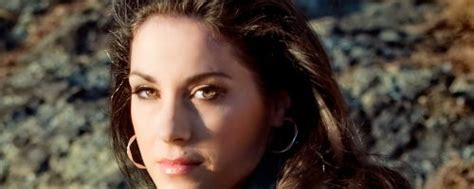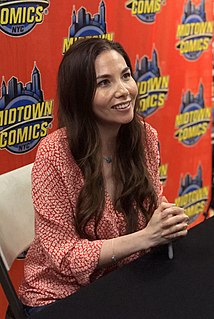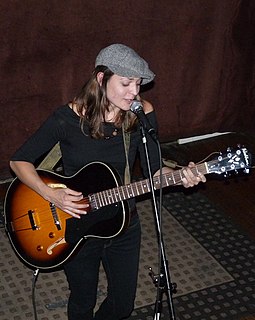A Quote by Chevy Stevens
When I first started writing 'Still Missing,' I didn't actually realize I was writing a thriller. I thought it was more women's fiction, but during the many years of rewrites, I kept taking out the boring parts, and then my agent informed me that I had written a thriller.
Related Quotes
I was a lot dumber when I was writing the novel. I felt like worse of a writer because I wrote many of the short stories in one sitting or over maybe three days, and they didn't change that much. There weren't many, many drafts. That made me feel semi-brilliant and part of a magical process. Writing the novel wasn't like that. I would come home every day from my office and say, "Well, I still really like the story, I just wish it was better written." At that point, I didn't realize I was writing a first draft. And the first draft was the hardest part.
Since my romance novels had all been thrillers as well, it wasn't such a leap for me to move into the straight thriller genre. The most difficult part, I think, was being accepted as a thriller writer. Once you've written romance, unfortunately, critics will never stop calling you a 'former romance author.'
It had also been my belief since I started writing fiction that science fiction is never really about the future. When science fiction is old, you can only read it as being pretty much about the moment in which it was written. But it seemed to me that the toolkit that science fiction had given me when I started working had become the toolkit of a kind of literary naturalism that could be applied to an inherently incredible present.
I started out writing romance novels, and that's a side of publishing that's very female oriented. 99.9% of the writers are women, most of the editors are women, and these are books written for the female gaze. And so my point of view - the way I looked at fandom and publishing and writing - was all about women. So for me that's what was natural, that's what was comfortable. And then I moved over to comics. And all of a sudden it was... Pardon the expression, it was a sausage fest.
If you're writing a thriller, and you don't make it compelling, then you've really not done your job. So it's easier for me not to set out with certain goals, and then I can't see them as unmet. It's like life generally: If I'm not aiming to be physically fit, then I'm not always thinking about being unfit.
What I find interesting and heartening, though, is that there does seem to be a shift in the subject matter being written about by women that is doing well in the culture. We're seeing more women writing dystopian fiction, more women writing novels set post-apocalyptic settings, subjects and themes that used to be dominated by men.
I still only play by ear. I don't have any training. But the piano actually makes more sense to me than guitar, even though I play more guitar now. And then, it wasn't till later that I started really writing songs. Writing songs was an outlet that I needed, so I became obsessed with it. It allowed me to express a bunch of stuff that had been piling up.
Once a poet always a poet, and even though I haven't written poems for a long time, I can nonetheless say that everything I've ever learned about writing lyrical fiction has been informed by three decades of writing in lines and stanzas. For me the real drama of fiction is almost always the drama of the language.


































